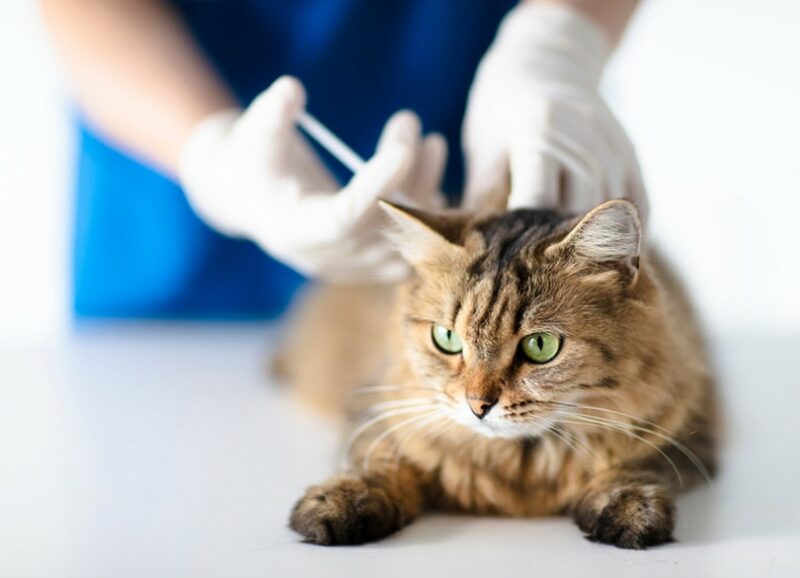There is, unfortunately, no simple answer to this question. As with humans, cancer is a leading killer of cats. Though the disease can be difficult to detect in felines, researchers are now developing blood tests that could help veterinarians diagnose cancer in cats earlier and more accurately. The hope is that these tests will lead to improved treatment outcomes for cats with cancer.
Today, a blood test can show some cancers in cats. The test is called a CBC, or complete blood count, and it checks for a number of abnormalities, including some cancers. With only a few exceptions, blood work alone does not accurately show whether or not a cat has cancer. On the other hand, a very high count of white blood cells might indicate leukemia, or a very high level of calcium in the blood would suggest several other cancers.
That being said, a CBC can help your veterinarian diagnose cancer early when treatment is most likely to be successful. However, blood tests cannot, as yet, detect all cancers in cats.
 How Good Are Blood Tests at Detecting Cancer in Cats?
How Good Are Blood Tests at Detecting Cancer in Cats?
It is possible for blood work to detect cancer in cats, as tumors can release chemicals into the bloodstream that can be detected by tests. However, not all types of cancers release detectable chemicals, so blood work may not always be able to identify cancer in cats. Additionally, many cancers are not detectable until they have reached an advanced stage, so blood work may not always be able to provide a timely diagnosis.
Although blood work can be used to detect many different types of cancer in cats, it is not always accurate. When you consider the fact that there are many different types of cancer, and each one has its own unique set of symptoms, it’s easy to understand why blood work may be able to identify some cancers early on, but it is not always effective in preventing suffering and death.
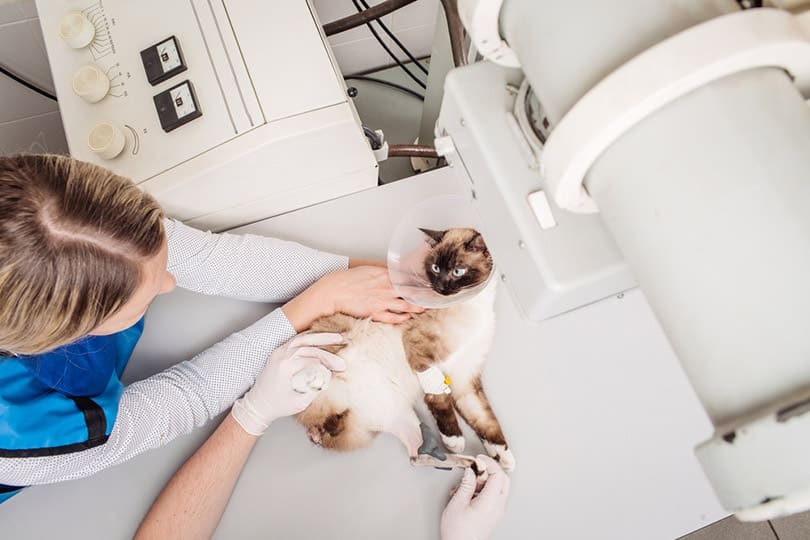

How Do Vets Test for Cancer in Cats?
There are a few ways that cancer can be detected in cats. One common method is a blood test, which can help to identify tumors that have spread to other parts of the body. Veterinarians may also perform a biopsy, which is the removal of a small piece of tissue from the suspected tumor so that it can be examined under a microscope. If cancer is confirmed, the veterinarian will then recommend an appropriate treatment plan.
How Is Cancer Diagnosed in Cats?
There are a number of ways to detect cancer in cats. The most common approach is a physical examination by a veterinarian, during which the veterinarian will look for signs of the disease. If cancer is suspected, the veterinarian may order additional tests, such as X-rays, ultrasound, or a biopsy. If a biopsy of the tumor is performed, the specimen will be analyzed by a veterinary pathologist. The pathologist will look for the presence of cancer cells and determine the type of cancer.
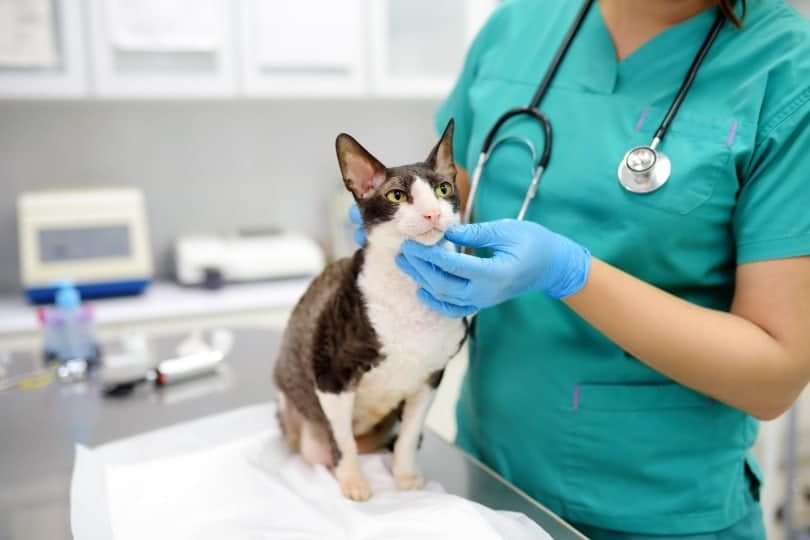
How Is Lymphoma Diagnosed in Cats?
Lymphoma is a cancer of the lymphatic system and is a type of cancer that affects the lymphocytes, which are a type of white blood cell. The diagnosis of lymphoma in cats is typically based on a combination of clinical signs, radiographic findings, taking a biopsy of the tumor and examining it under a microscope, and determining a diagnosis through histologic examination of specimens.
Clinical signs of lymphoma may include enlargement of the lymph nodes, weight loss, poor appetite, and lethargy. Radiographically, enlarged lymph nodes may be visible as focal masses within the body.

What Causes Intestinal Cancer in Cats?
Intestinal cancer in cats is most commonly caused by tumors that form in the cells of the intestine. These tumors can be benign (non-cancerous) or malignant (cancerous) and can affect any part of the intestine. The most common symptoms of intestinal cancer include vomiting, diarrhea, weight loss, and lack of appetite. Intestinal cancer is diagnosed through a combination of clinical signs, imaging tests, and biopsy results.
The cause of intestinal cancer in cats is unknown, but it is believed that genetics and environmental factors may play a role. The most common type of intestinal cancer in cats is lymphoma, which is a type of cancer that affects the lymph nodes. Other types of cancer that can affect the intestines include adenocarcinoma, sarcoma, and leiomyosarcoma.
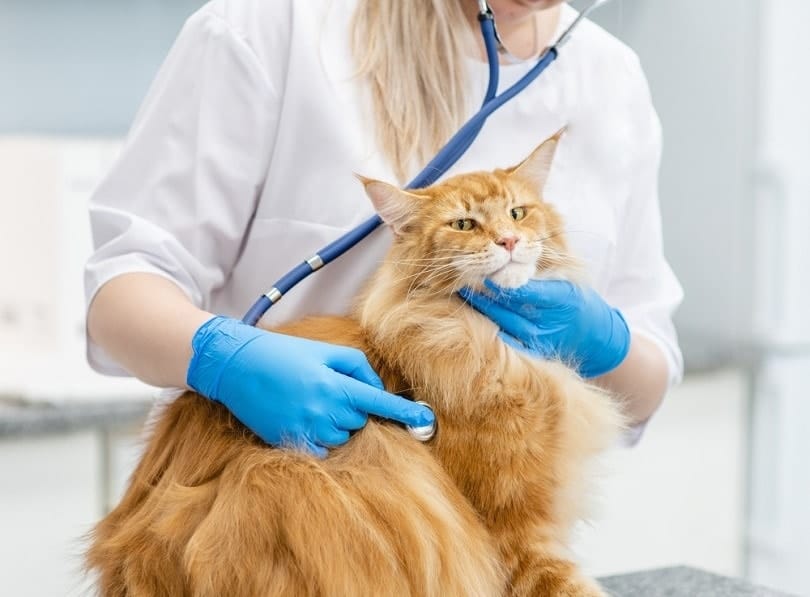

How Often Should My Cat Have a Blood Test?
A blood test is a diagnostic procedure that involves extracting a small amount of blood from a cat for examination in a laboratory. The purpose of a blood test is to assess the health of the cat by identifying any abnormalities in the composition of their blood.
There is no definitive answer to this question, because the frequency with which a cat should have a blood test depends on a variety of factors, including the age and health of the individual cat, what tests are being performed, how often the cat’s health needs to be monitored, their individual medical history, and the results of previous blood tests. In general, though, it is recommended that cats have blood tests performed at least once a year.
How Long Does It Take to Get Cat Blood Test Results?
The length of time it takes to get cat blood test results depends on the type of test that is being administered. For example, a complete blood count (CBC) can usually be completed within a day, while tests for feline leukemia or AIDS may take several days.
Some veterinary clinics may offer rapid testing services that can provide results in minutes, but these tests are not always as accurate as those that are completed in a laboratory. In general, results are available as soon as they are completed, though some laboratories may take longer to report abnormal results.

How Much Does a Blood Test for a Cat Cost?
The cost of a blood test for a cat can vary depending on the clinic or hospital performing the test, but typically, the cost ranges from $30 to $100. This is because the blood may be being screened for a variety of conditions, including feline leukemia and AIDS. Some clinics may offer discounts if you have multiple pets that need to be tested. It is important to ask about pricing before you schedule the appointment so that you are not surprised by the final bill.
Should I Get Blood Work Done for My Cat?
There is no one-size-fits-all answer to this question, as the best course of action for a cat’s health will vary depending on the individual animal’s health history and current condition. However, in general, blood work can be a valuable tool for assessing a cat’s overall health and detecting potential problems early. There are many reasons why a cat owner might choose to get blood work done for their pet. As well as helping to diagnose a variety of health problems in cats, it can also help veterinarians track the overall health of a cat over time.
Some common blood tests that may be recommended for cats include a complete blood count (CBC), a serum biochemistry profile, and a urinalysis.


How Much Does a Cat Biopsy Cost?
A cat biopsy typically costs around $200. The price may vary depending on the location, the type of biopsy, and the size of the animal. A biopsy is a diagnostic procedure that involves removing a small piece of tissue for examination under a microscope. This procedure can help identify the cause of a pet’s illness. Oftentimes, an ultrasound is recommended prior to a biopsy to help identify the location of the lesion.
What Should I Do If My Cat Has Cancer?
If your cat has been diagnosed with cancer, there are a number of things you can do to help them. First, talk to your veterinarian about the best treatment options for your cat. There are a variety of treatments available, including chemotherapy, radiation therapy, and surgery. Depending on the type and stage of cancer, your veterinarian may recommend one or more of these treatments.
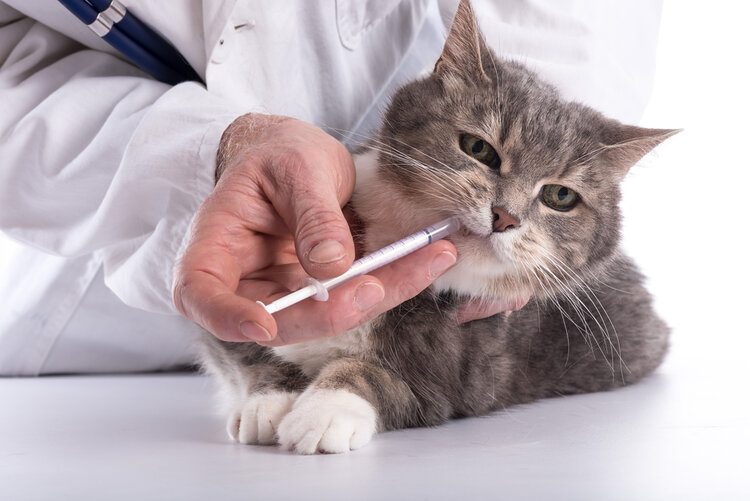
How Long Can Cats Live With a Tumor?
There is no definitive answer to this question as it depends on a variety of factors, including the size and type of tumor, whether it is cancerous or benign, and the overall health and age of the cat. Tumors can cause a wide range of health problems in cats, from mild to life-threatening, and can significantly reduce their quality of life.
Cats can live with tumors as long as the tumor is not cancerous and does not interfere with the cat’s quality of life. If the tumor is cancerous, it will likely shorten the cat’s lifespan, but if it is benign and does not cause any problems, the cat can usually live a normal life. In general, however, cats with tumors have a shorter life expectancy than those without tumors.
How Much Does It Cost to Remove a Tumor From a Cat?
The cost of removing a tumor from a cat can vary depending on the size and location of the tumor, the specific surgical procedures required, as well as the veterinary clinic performing the surgery. Generally, the cost ranges from several hundred to over a thousand dollars. Some clinics may offer discounts if the tumor is benign and not cancerous. This is because some tumors can be simply removed, while others may require more extensive surgery.
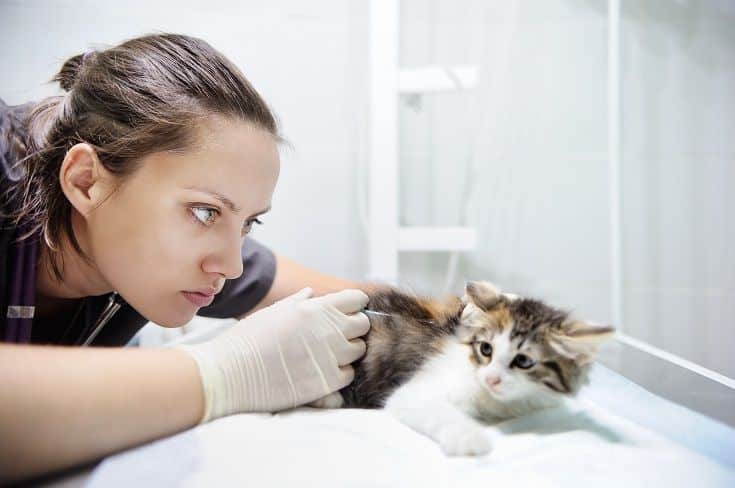
How Can You Tell if Your Cat Is in Pain From Cancer?
There are a few ways to tell if your cat is in pain from cancer. One way is to look out for common changes in behavior. If your cat is normally active and starts to become more lethargic, this could be a sign that he or she is in pain. Another sign is if your cat is eating less than usual or not at all.
Changes in eating habits can be a sign that the cat is experiencing pain from cancer. If your cat is displaying any of these symptoms, it’s a good idea to take them to the veterinarian for a check-up.
 Conclusion
Conclusion
In conclusion, while not all cancers can be definitively diagnosed in cats through a blood test, there are certain signs that could indicate the presence of the disease. There are many promising developments in cancer research for cats, and it is likely that a more comprehensive blood test for cancer will be developed in the near future.
Until then, the best way to detect cancer in cats is through regular physical exams and imaging tests. If you believe your cat may be suffering from cancer, it is important to take them to the veterinarian for a proper diagnosis.
Featured Image Credit: Tom Wang, Shutterstock
- 1 How Good Are Blood Tests at Detecting Cancer in Cats?
- 2 How Do Vets Test for Cancer in Cats?
- 3 How Is Cancer Diagnosed in Cats?
- 4 How Is Lymphoma Diagnosed in Cats?
- 5 What Causes Intestinal Cancer in Cats?
- 6 How Often Should My Cat Have a Blood Test?
- 7 How Long Does It Take to Get Cat Blood Test Results?
- 8 How Much Does a Blood Test for a Cat Cost?
- 9 Should I Get Blood Work Done for My Cat?
- 10 How Much Does a Cat Biopsy Cost?
- 11 What Should I Do If My Cat Has Cancer?
- 12 How Long Can Cats Live With a Tumor?
- 13 How Much Does It Cost to Remove a Tumor From a Cat?
- 14 How Can You Tell if Your Cat Is in Pain From Cancer?
- 15 Conclusion

